AUGUSTA — Advocates of school choice from across the country on Friday urged Mainers to transform the state’s public education system by allowing taxpayer funds to be used to pay private and charter school tuition, as well as increasing teacher accountability, student testing and the number of ways in which a person can become a certified teacher.
The advocates, many of them from Florida and Indiana, made their cases at Gov. Paul Le-Page’s education conference in Augusta before an audience of 200 legislators, school officials and interested members of the public.
Invited panelists urged Maine’s policy makers to think of public education in terms of education that is publicly financed, but not necessarily taking place at public schools.
Florida education commissioner Tony Bennett, who gave the keynote address, argued to allow students to use taxpayer-financed vouchers to attend the school of their choice.
“If I come to Maine, I am going to choose where I live and where my children go to school and the simple reason is that I can afford to,” Bennett said. “Shouldn’t a poor, minority, single mother have that same right?”
INSPIRED BY FLORIDA’S EXAMPLE
In his opening address, Le-Page said he was inspired to launch the conference after attending the November 2012 national education summit convened by former Florida Gov. Jeb Bush and his Tallahassee-based Foundation for Excellence in Education.
“I had the good fortune of listening to these folks and I tell you it’s astounding what they have to offer and the things they will bring to you today and the things that are happening across the nation,” LePage said. “If you look at the track record in (Florida and Indiana), it’s just phenomenal what they have done with their kids and we can do that here.”
Most of the speakers had presented at Bush’s conference or worked for his foundation, including Bennett, Kate Walsh of the National Council on Teacher Quality and Jeanne Allen, president of the Center for Education Reform.
Friday’s conference spotlighted reforms in Florida, with advocates saying the state had seen remarkable improvements in test scores. The reforms, which were instituted while Bush was governor, include a letter-grade rating system for public schools, vigorous testing and an expansion of voucher programs, charter schools and virtual schools.
“Florida used to be one of the worst-performing states” on national standardized tests, said presenter Matt Ladner, a Foundation for Excellence in Education staffer and a fellow at the conservative Goldwater Institute. “It has made a lot of improvements. What they have done is proved that demography is not destiny.”
“We were so bad we would try anything because we just wanted to get better,” said the foundation’s executive director, Patricia Levesque.
AFFECTING MAINE’S AGENDA
The foundation has heavily influenced the LePage administration’s education agenda. Correspondence acquired through public-records requests has shown that Maine education Commissioner Stephen Bowen has often turned to the foundation for advice, draft laws and other support on initiatives the foundation supports.
A Portland Press Herald/Maine Sunday Telegram investigation published Sept. 2, 2012, found that Bowen also relied on foundation officials to develop Maine’s digital education policies, forward draft legislation and the text of the governor’s executive order on the issue, and pay for Bowen and education department staff to attend foundation-sponsored conferences, including the national summit that inspired LePage.
It also exposed the foundation’s entanglements with online education companies that stood to benefit from the policies, and the fact that Levesque was a paid lobbyist for many of the companies and received her compensation for leading Bush’s foundation through her lobbying firm.
Earlier this month, Levesque pulled her firm’s lobbying registrations after Florida media raised questions about the legality of the arrangement. The foundation announced she would become a full-time employee. She will not have to change her business address, however, as the foundation and her firm, Meridian Strategies, share a post office box.
CRITICS: ‘UNPROVEN METHODOLOGY’
Teachers’ unions and critics believe the Florida model’s goal is to privatize public education and enrich companies that would capitalize on the changes.
“If you’re interested in corporations running your schools, if you’re interested in losing local control, if you’re interested in letting state bureaucrats and corporations make all your decisions, if you’re interested in ignoring any expertise your superintendents, teachers and principals have, then have at it,” said Mark Pudlow, spokesman for the Florida Education Association, that state’s primary teachers’ union. “It’s a great system.”
The president of the Maine Education Association, Lois Kilby-Chesley, agreed. “The people who are here, we know their agenda: It’s anti-public schools and corporation-driven,” she said. “It’s not what Maine students need and it’s definitely not what Maine parents and the public wants in Maine.”
Critics also say Bush and his foundation take credit for education improvements in Florida that may not have been the result of his initiatives.
“They just randomly say that it’s because of their reforms, but they don’t demonstrate causality,” said William Mathis, managing director of the National Education Policy Center at the University of Colorado-Boulder, whose scholars have been critical of Bush’s policies.
“Florida also had a constitutional amendment limiting class size and a very massive new reading program that went through at the same time. They don’t give any of these proven reforms the credit, but instead some unproven methodology like letter grades” for schools.
REPHRASING THE MESSAGE
Other presenters at the conference were Eric Lerum, vice president of StudentsFirst, founded by former D.C. schools chancellor Michelle Rhee; Leslie Hinter, a vice president at the conservative Friedman Institute; foundation staffer Mike Thomas; and the headmaster of Thornton Academy, Rene Menard. Two high school students — Cony senior Michelle Zhang and Deering sophomore Mohamed Nur — also gave remarks.
“The fact that we’re having an education forum and there are no public educators on the stage, I find that a little disconcerting,” Kilby-Chesley said.
Bennett, who was previously education commissioner in Indiana, acknowledged that he lost that job in the last election, and said that it was because of his failure to build strong support for his school-choice agenda.
He advised Maine reformers to change their messaging, replacing the key words “competition,” “freedom” and “accountability” with less polarizing alternatives — “promoting social justice,” “leveling the playing field” and creating more “quality schools.”
“Those guiding principles, if spoken right, help you build that coalition of support,” Bennett said. “I’ve spent a little time with Gov. LePage. I believe, in his heart, he wants what is best for every child in Maine. But when he conveys that, he has to win the hearts and minds of every citizen in Maine without splitting the population apart.”
LePage has made headlines in recent months for denouncing Maine’s public schools as “dismal” and “failing” and asserting that “if you want a good education in Maine, go to private schools.”
In his opening remarks, the governor alluded to his blunt approach. “I don’t apologize for being a little rough around the edges because that what happens when you’re on the streets,” he said, a reference to having run away from an abusive home at age 12. “But I will tell you this, it comes from the right place. It comes from wanting to make sure that every student gets it and that we provide it.”
Allen, of the Center for Charter School Reform, and the Friedman Institute’s Hinter said that expanding charter schools and offering vouchers might drain resources from public schools in the short term, but this would encourage teachers and administrators to make improvements.
“In the end, money does flow with the kid,” said Allen. “Schools will have to adjust.”
Colin Woodard can be contacted at 791-6317 or at:
cwoodard@pressherald.com
Send questions/comments to the editors.




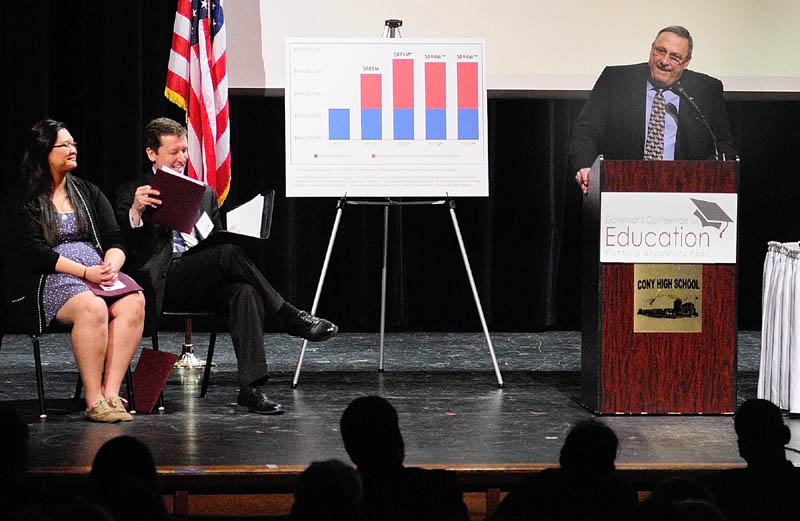
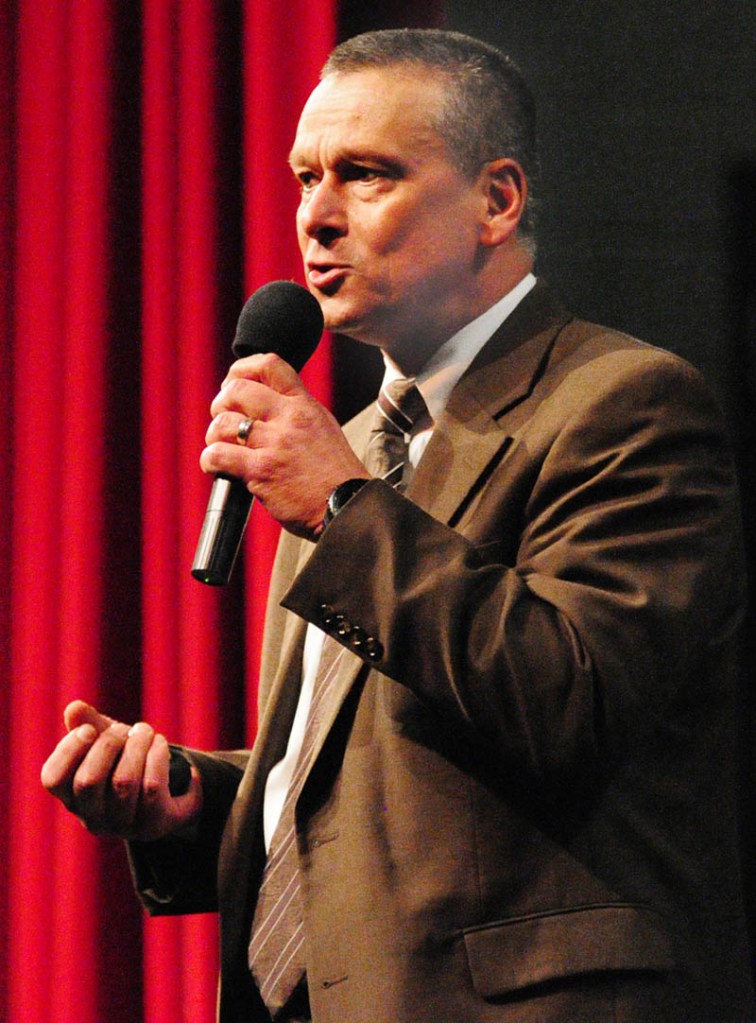
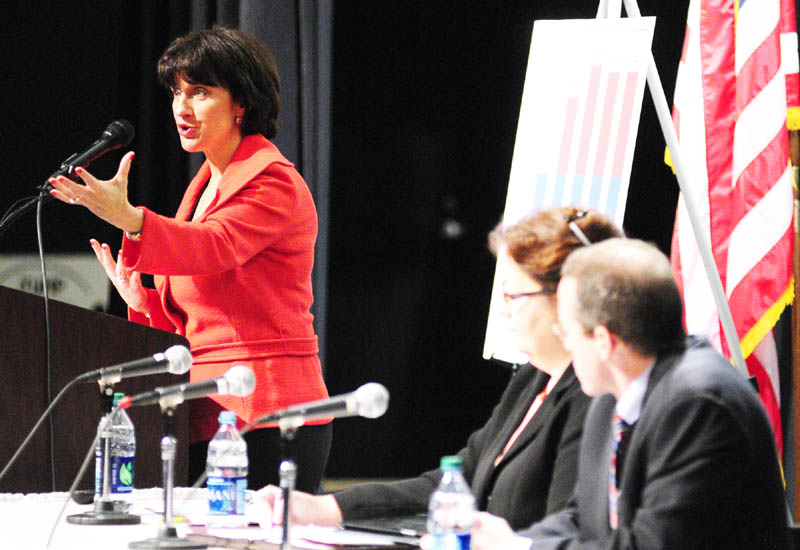
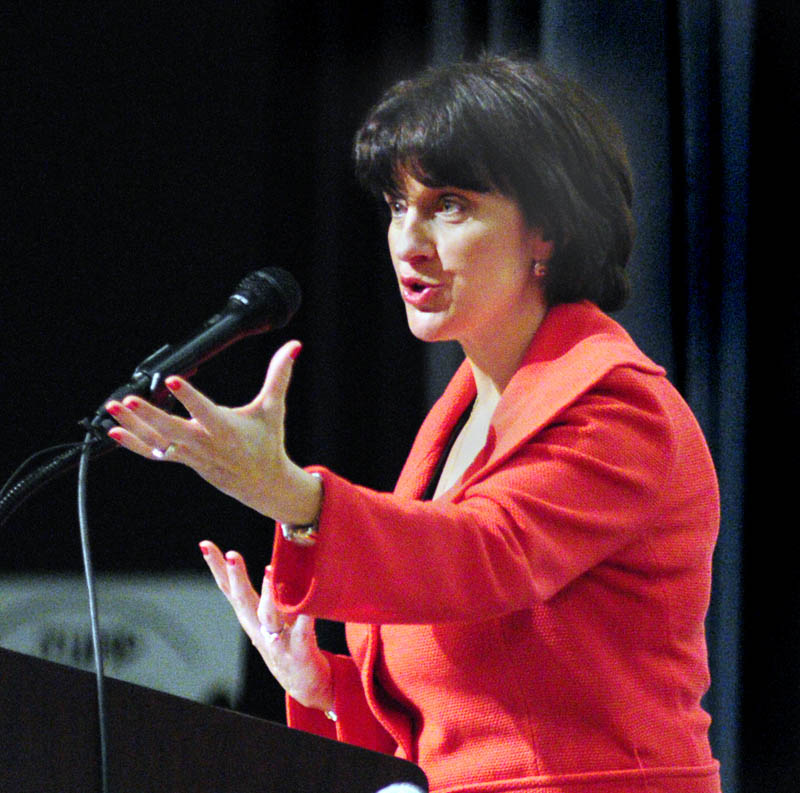
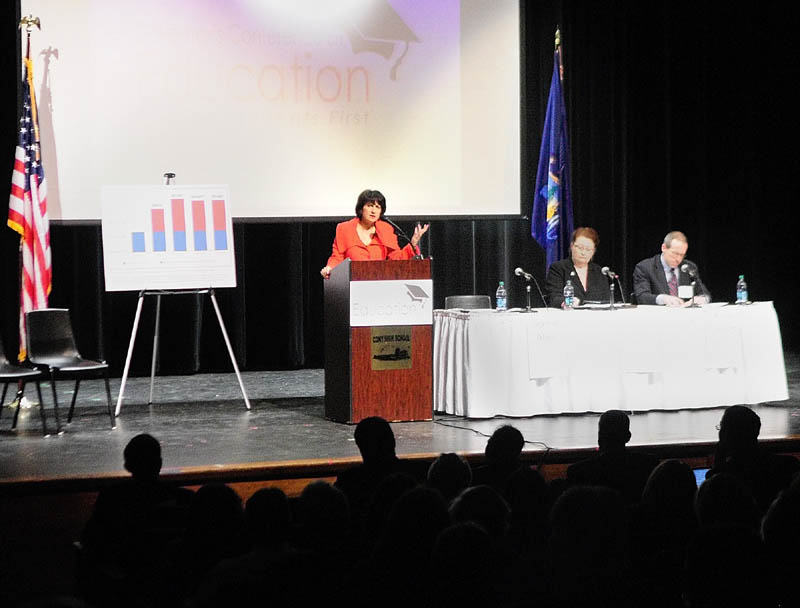

Comments are no longer available on this story